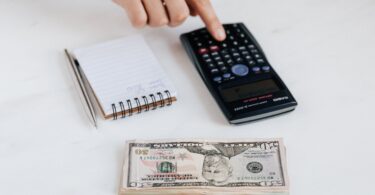People imagine the dark web when they think of criminals and hackers operating online. However, they don’t have to look that deep to get their hands on your data. A simple search through a background check service like checkpeople can reveal how much of your information is readily available.
We fear what people can find out about us or what threatens us in general through the ‘dark web’, but we needn’t. We have very little control over it. What we should worry about is our everyday Internet use. This includes the amount of personal data we make available on sites that are easy to access and the strength of our passwords, which are often woefully lacking such.
How did It Come to This?
We’ve been far too generous with personal information for far too long. In addition, companies have failed to secure it miserably. As a result, the ‘regular’ web has become heaven on Earth for hackers and scammers.
If someone chooses to target you, they could comb forums, social networks, shopping sites, large data deposits collected in data breaches, and digitized public records to create a comprehensive picture of your personal data. They can find email and mailing addresses, passwords and password hints, middle names, dates of birth, phone numbers, and even signatures.
A wealth of data regarding your political preferences, hobbies, interests, and perhaps even your religion will surface. This data can be used to perpetrate a large number of crimes, from taking over a bank account or mobile phone number to applying for a loan in someone else’s name. Passwords stolen in the data breach of a particular company are an easy way to access accounts on different websites, because a lot of people use the same password across the board.
Take Control of Your Digital Fate
Are you starting to feel anxious about your online safety? Don’t worry – there are things you can do to secure your internet presence. The most important thing is creating unique and strong passwords for every account. They must be truly unique, not variations of passwords for different sites. If a hacker gets his hands on your base password, they will figure out all the rest quickly and could then hack all of your accounts. You need a different password for all your site accounts.
In fact, passwords have become somewhat old school. The name of the game is passphrases if you want to survive the ‘webscape’ of today.
But why have passwords become so unreliable? What about website encryption? While most websites do encrypt passwords, it’s easy to crack separate words found in the dictionary. Hackers use lists of the most common passwords’ encrypted versions.
Choosing Passphrases Wisely
When you choose a passphrase, don’t pick something like a famous quote. That’s easy to guess. Your passphrase shouldn’t be based on personal data that is easy to work out. You should pick something random and write it down because you’ll probably forget it. Four random words like “golden lions eat mice” will work just fine.
Just like with passwords, don’t use personal information in passphrases. This is information that someone could guess or knows about you. It includes your pet’s name, your child’s name, your middle name, your hometown, your partner’s name, your mother’s maiden name, your place of birth, your favorite sport, your maiden name, your favorite sports team’s name, where you went on your honeymoon, or the name of your favorite athlete.
Be very careful about revealing personal data on social networks. Many social media have personality tests that get you to share personal information. They carry very real risk.
Special Characters
At least one site you have an account on has asked you to use special characters in your password or passphrase, including symbols, capital letters, and numbers. The first thing you might do is put symbols and numbers in place of letters of the alphabet, so the name “Amanda” might become “@m@12@.” Hackers are privy to that trick as well, so insert special characters into your passphrase if a website insists you use them.
Make sure personal data like contact details, your middle name, and your birthday on your social media is private. For example, Facebook’s default profile setting is public. If you find your landline has been listed in an online directory, ask for it to be deleted. Don’t use information like your mother’s maiden name as the answer to a security question.





